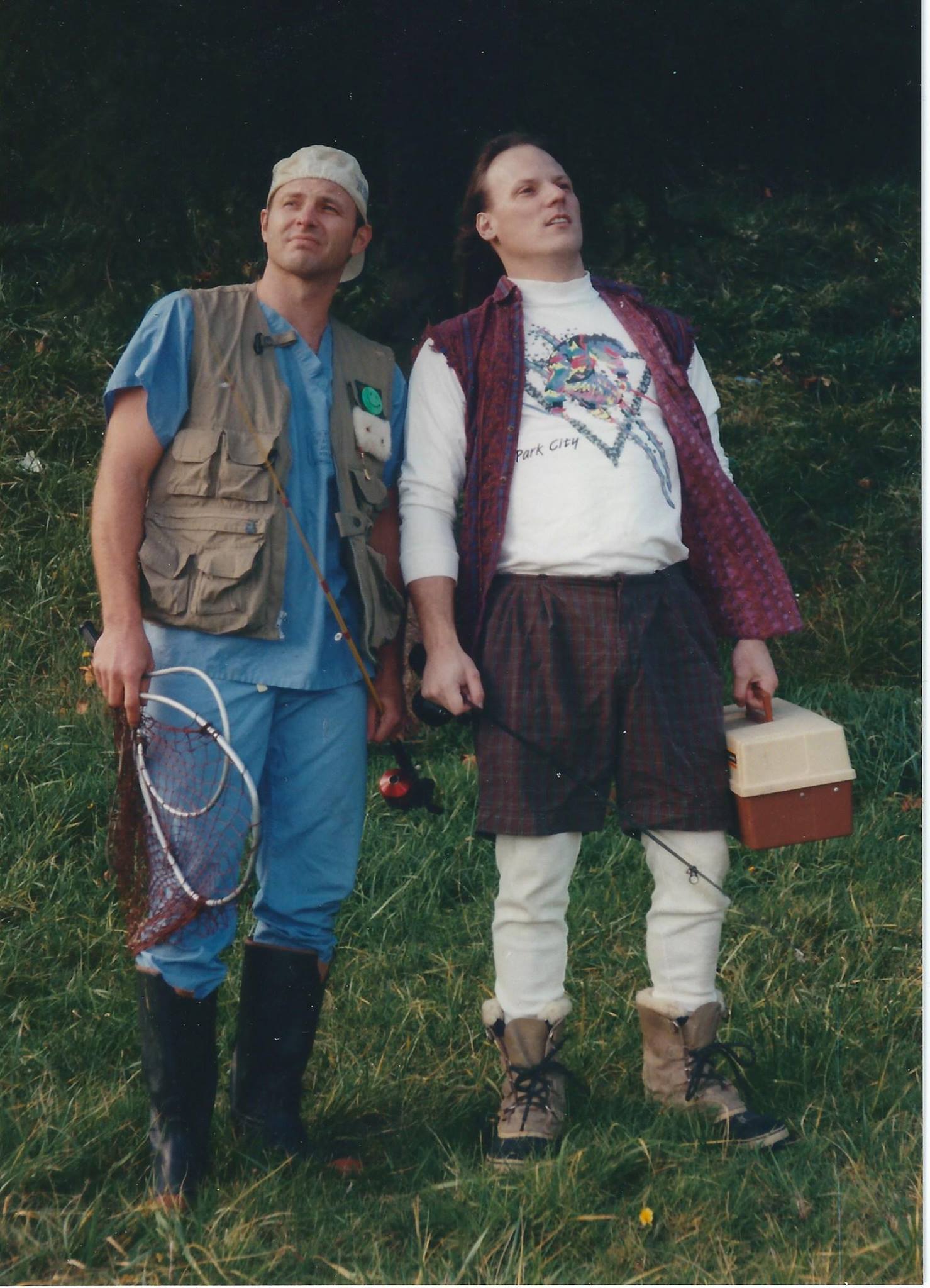Big Blue (alternately known as Big Blue – A Fishy Tale) emerges from the combined minds of Kris Hallesy and Matthew Aird, and in its essence, it is an ode to the adventures of youth that slip too easily into the realm of myth. Here, the myth takes the form of Big Blue, a fish as large as a childhood fear, that Billy—portrayed with endearing sincerity by Verne Graham—has been haunted by for as long as memory permits. His sidekick, Jesse, played by Aird, offers the comedic balance of unwavering loyalty, a foil who moves through this surreal landscape with a nonchalance that is both comforting and absurd. Together, they pursue their legendary quarry across a landscape that is as much emotional as physical, an arena shaped by nostalgia, camaraderie, and the open-ended optimism that belongs only to the pursuit of something unattainable.
The plot is straightforward, perhaps deceptively so: two friends on a fishing trip to catch an oversized fish. But beneath that simplicity lies a narrative filled with unexpected turns, strange encounters, and a humor that grows from the increasingly ridiculous situations in which Billy and Jesse find themselves. This absurdity, however, is tempered by the depth of their relationship—years of friendship painted in quiet gestures, shared laughter, and an unspoken understanding. The connection between Graham and Aird, both in and out of character, anchors the film, transforming what could be a farce into something altogether more human, more tender. One watches not for the fish, but for the men chasing it.
A particular delight is the film’s refusal to take itself seriously. From the outset, it telegraphs its whimsical nature, inviting the viewer into a world where plausibility takes a backseat to the pleasure of the chase. As Billy and Jesse bumble through makeshift campsites and stumble upon eccentric locals, it is clear that the journey is less about success and more about the adventure itself. In this way, Big Blue becomes less a fishing story and more a modern-day fable, complete with its larger-than-life heroes and improbable feats.
The soundtrack—an eclectic mix featuring the work of Vicious Kitty, Solid Mass, and others—serves not only to elevate the film’s rebellious spirit but also to tie it intimately to the world of its creators. Tracks such as “Treat Me Right” (Vicious Kitty) and “Cow Trippin” (The Jam Band) infuse the film with an energy that mirrors the reckless joy of the characters’ quest, their guitars as sharp and immediate as the lines they cast into the water. It is a score that matches the film’s tone with precision, giving it the feel of a project born of passion and sustained by the sheer pleasure of creation.
Of course, Big Blue is not without its flaws. It is rough around the edges, occasionally slipping into moments of narrative incoherence or visual disarray. But these imperfections feel less like failures and more like the natural consequence of a film that exists outside the confines of polished, corporate storytelling. It wears its roughness as a badge of honor, a testament to the raw enthusiasm of its makers.
In the end, Big Blue is not a film about a fish at all. It is about the friendships that shape us, the adventures that define us, and the dreams we continue to chase long after we’ve grown too old to believe in them. There is a sweetness to it, an innocence that lingers long after the credits have rolled, reminding us that the greatest pursuits are those that never quite end.
Cleopatra Patel
